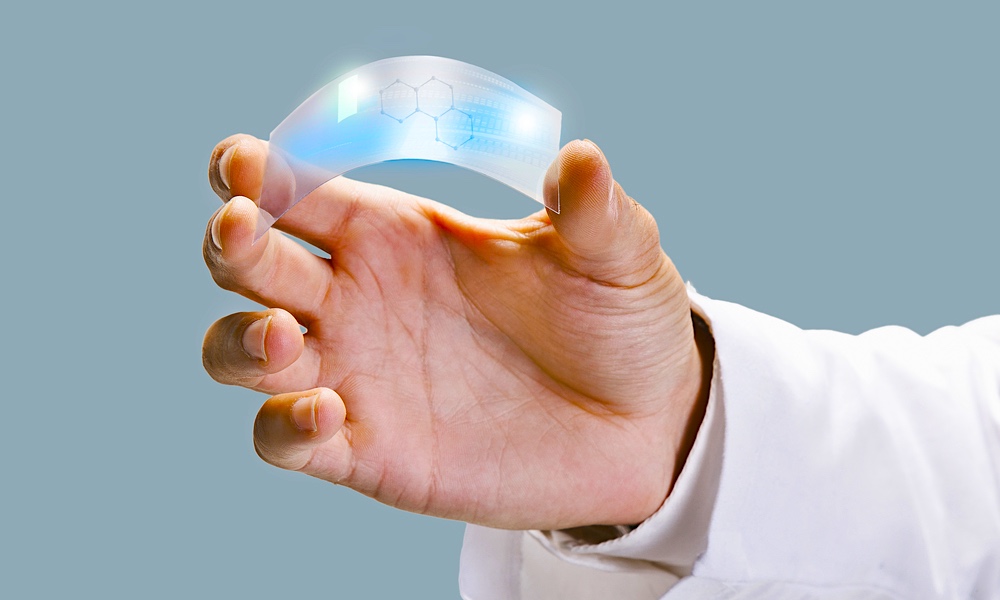Real-Life Cyborgs? Groundbreaking Material Can Merge AI with the Human Brain
 Credit: Bonninstudio / Shutterstock
Credit: Bonninstudio / Shutterstock
Toggle Dark Mode
Terminator is one step closer to reality thanks to a new bio-synthetic material unveiled recently at the American Chemical Society Fall 2020 virtual expo. According to a team of researchers at the University of Delaware, the new material merges artificial intelligence with the human brain. It’s a significant step in the development of part human, part robotic beings that science fiction lovingly calls cyborgs.
The researchers looked high and low for a material that would connect to human tissue without leaving scars. Electronics typically use silicon, gold, and steel, which produce scarring in the host’s body. Scar tissue damages the person’s muscle or, in this case, brain tissue. It also interrupts the electrical activity of the device being installed.
The team started looking at organic electronic materials that would reduce or eliminate scarring and eventually discovered Pedot.
Pedot is commercially available, antistatic coating for electronic displays. It is very chemically stable, making it ideal for use in medical implants.
“Name your favourite biomolecule, and you can in principle make a Pedot film that has whatever biofunctional group you might be interested in.”
Dr David Martin, University of Delaware
The team created a Pedot film with an antibody that could be used to detect tumor growth inside the body and one with dopamine for treating addiction. These films could be coated with any peptide, antibody, or even DNA, making them infinitely useful.
The University of Delaware isn’t the only research team working on organic neural interfaces. Elon Musk’s Neuralink, not to be confused with Starlink, is developing a commercial product that aims to connect a person’s brain with a computer. The startup is close to unveiling its first brain chips later this year. Musk has made some grandiose claims about his company’s emerging technology. It could amplify a person’s hearing or even make it possible to stream music directly to a person’s brain, said Musk.






